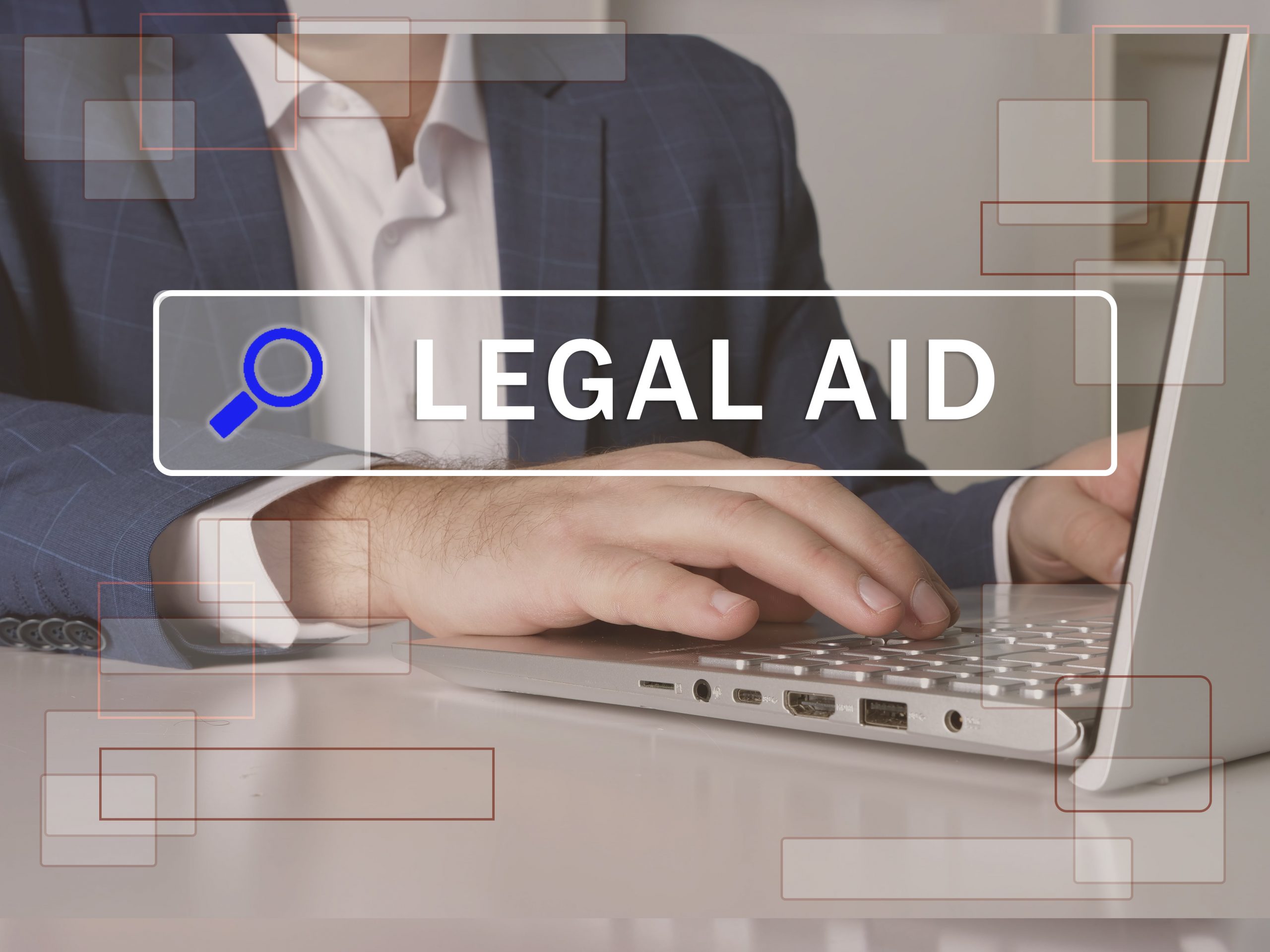Share This Article
Legal Aid Criminal Lawyers | Can I get Legal Aid in NSW?
Legal Aid NSW provides legal services to economically disadvantaged people charged with criminal offences across the state on New South Wales. This includes criminal cases listed in the Local Court, Children’s Court, District Court, Supreme Court, Court of Criminal Appeal, and the High Court of Australia.
Legal Aid works in partnership with private criminal law firms, which includes Criminal Defence Lawyers Australia, who Legal Aid may assign a grant of legal aid to fund an accused person’s case.
To get a legal aid criminal lawyer, you will need to complete a legal aid application to obtain a grant of aid.
Some common criminal charges that people apply for legal aid Gants for include the following:
- Sexual assault trials
- Murder and Manslaughter
- Break and Enter and Robbery offences
- Firearms and Weapons
- Serious Drugs Supply and Importation
How to Apply for Legal Aid | Legal Aid Application Form
Once the legal aid application form is filled out, it mut be accompanied with proof of your income (i.e., pay slips, Centrelink statements or tax return) as well as the last three months of your bank statements for all accounts you own.
Questions included on the form include your personal details, details related to your income, assets, dependants, expenses, and what you are seeking aid for.
It is also required for you to submit documents related to your matter, such as a copy of your ‘court attendance notice’ and police ‘facts sheet’.
You are also able to provide further relevant legal, medical, or other documents that you think would assist your application.
A section of this form will permit an applicant to elect a private criminal defence lawyer (who is on the Legal Aid panel) to be assigned their case on a legal aid grant. For example, as Criminal Defence Lawyers Australia are on the legal aid panel, a person seeking legal aid may put us down as the preferred legal aid lawyer for their case. This does not guarantee that legal aid will assign it to your preferred lawyer, but it helps you get your preferred lawyer especially if your preferred lawyer has already been working on your case with all the knowledge and evidence leading up to making your legal aid application.
The team at CDLA have worked on countless legal aid cases over the years and are happy to assist in helping people struggling to make a legal aid application. Get in touch with our Sydney office to have a chat with our friendly staff today on (02) 8606 2218.
How and Where to Submit Your Legal Aid Application Form
When these materials have been compiled, you can:
- Attend any Legal Aid NSW office and hand it in,
- Post it to Legal Aid NSW (Grants Division, PO Box K847, Haymarket, NSW 1240),
- Fax it to Legal Aid NSW (02 9219 5533), or
- Request that a private practitioner submit it on your behalf.
Legal Aid Waiting Time | How Long Does Legal Aid Take to Be Approved?
There is no prescribed time it can take for legal aid to process your application and waiting times will vary. However, in practice, a legal aid grant is often accepted between 3 to 6 weeks from lodging the application form. It can in some cases take longer.
If there is a good reason to fast track the approval process time, then you may expedite this by contacting Grants on the below number, explain the reason for urgency, and they will assist. This may then require you to send a follow up email to grants legal aid outlining the reasons for the urgency.
To follow up the progress of a grants assessment, you can contact the Grants Division of Legal Aid directly on 02 9219 5880.
What are the Criteria to Get Legal Aid Lawyers?
When assessing whether you will be granted aid, Legal Aid will apply the ‘means test’ and ‘merit test’ to determine whether you are eligible. Legal aid will be refused if these tests are not satisfied, while legal aid will be granted it these tests are satisfied.
If unsuccessful in getting legal aid, it may be worthwhile considering a private criminal defence lawyer for an affordable fixed fee. A fixed fee should include all the preparation, consultations, and in-court representation for the case.
What is the ‘Means Test’?
The ‘means test’ is focused on an applicant’s income and assets and is utilised to determine whether they will be financially eligible for legal aid, and if any initial contribution is payable.
It is ultimately used to consider whether an applicant could be able to meet their legal costs if they weren’t provided with a grant.
An applicant receiving a Centrelink income support payment at the maximum rate will ordinarily satisfy the income test.
If not on Centrelink, an applicant will need to have a net assessable income of $400 or less per week to obtain aid, unless there are exceptional circumstances.
Net assessable income is whatever the applicant’s income is, minus allowable deductions such as income tax, housing costs, child support, or childcare costs.
An applicant’s assets will also be assessed which includes any land, cash, shares or other investments.
Notably, where the estimated costs of proceedings is over $10,000, and an applicant owns a house or land, they will be required as a condition of the grant to execute a charge over the property to secure the total costs and expense of providing the legal service.
The income and assets of anyone considered a ‘financially associated person’ to the applicant are also included in the ‘means test’ assessment.
A ‘financially associated person’ is any person who could reasonably be expected to contribute to the applicant’s legal costs.
For example, an adult couple who reside in the same household would be considered financially associated persons.
Furthermore, an adult person would be considered financially associated to their children, if the child is under 17 years or a full-time student up to 24 years of age.
However, if the child is an adult, and is in receipt of Centrelink income or working, their parent will not be considered financially associated.
You may contend that the income and assets of a financially associated person should not be considered including in situations where you don’t have access to the income or assets, it may involve a partner you are separating from, or any other special reasons.
The ‘means test’ assessment is also utilised to determine the amount you may be required to contribute to your legal fees through Legal Aid.
In local court criminal matters, a recipient will generally be required to pay a $75 contribution if they obtain the maximum rate of a Centrelink payment or earn up to $400 or less per week., which is the minimum contribution.
However, in exceptional circumstances where the net assessable income exceeds $400, and aid is granted, the following contribution will apply:
- $401 – $442 = contribution of $150,
- $443 – $484 = contribution of $225,
- $485 – $500 = contribution of $225, plus $50 for every $10 of net assessable income in excess of $500.
Contributions may also be payable based upon an applicant’s assets.
What is the ‘Merit Test’?
The ‘merit test’ seeks to determine whether it is reasonable to grant legal aid, in all of the circumstances.
In most Local Court criminal matters, aid will only be granted where the offence carries a term of imprisonment as an available penalty or there are other exceptional circumstances.
However, if an applicant has entered a plea of not guilty or it involves a driving/traffic offence, aid will only be granted where, if convicted, there is a real possibility of a term of imprisonment being imposed for the matter.
This test is not applicable for Local Court committal matters (i.e., serious matters that will proceed to the District or Supreme Court).
If you are seeking aid for an appeal matter, such as an appeal to the District or Court of Criminal Appeal, the merit test includes whether you have reasonable prospects of success.
Furthermore, aid for a severity appeal to the District Court from the Local Court (i.e., an appeal against the severity of a sentence) will only be granted where the Local Court’s sentence involved a term of imprisonment, unless there are exceptional circumstances.
Whether you have reasonable prospects of success is also relevant to whether applications for aid for Supreme Court bail applications are granted.
Where an application involves this test, an applicant or assisting legal practitioner will need to outline the reasons why they believe there is reasonable prospects of success.
Can I Choose My Lawyer if I Apply for Legal Aid?
As previously outlined, applicants can nominate a private practitioner/lawyer to handle their case on their application.
However, if granted aid, it is important to note that the matter may not be assigned to that nominated practitioner and Legal Aid may keep the matter ‘in-house’.
Legal Aid policies prescribe that matters will be assigned to in-house Legal Aid lawyers wherever this is possible.
However, where a matter is unable to be conducted by the in-house practice (i.e., due to the office’s capacity), it will be assigned to a private practitioner.
If the matter is to be assigned to a private practitioner, and the applicant has expressed a preference, the matter will be assigned to that preferred practitioner.
The private practitioner will need to be on the Legal Aid panel, which essentially means they have been approved by Legal Aid to take on legally aided clients.
Where an application is made at a later stage in proceedings, an applicant or their nominated private practitioner may submit that they have a stronger familiarity with the matter and have built rapport with the client and should be assigned the matter, noting they have represented them up to this stage.
However, it is important to note that this is not determinative and Legal Aid may nonetheless seek to keep the matter in-house.
Notably, grants of aid for a Supreme Court bail application will almost always be kept in-house and handled by Legal Aid’s Supreme Court bails team, unless there are exceptional circumstances.
Where a barrister is to be briefed in a matter (i.e., after ‘charge certification’ in committal proceedings, or prior to sentence or trial proceedings in the District Court), a practitioner is firstly required to submit a request for a Public Defender.
Public Defenders are barristers who appear in serious criminal matters for clients who have been granted legal aid.
However, if they do not have any availability to take on the matter, they will respond with a ‘non-acceptance’ of the brief.
Once this has been received, a practitioner will be able to select from barristers who are on the legal aid panel and are able to take on the matter to brief.
Legal Aid will generally not grant further funding for a barrister to appear in a Local Court defended hearing unless there are exceptional circumstances.
When Can You Apply For Legal Aid?
Applications for legal aid will need to be submitted within a reasonable time prior to the matter being heard at court, to ensure the application can be considered and aid granted.
If you have initially privately funded your matter, you can make an application for Legal Aid if you have exhausted all other available funds.
Legal Aid may query expenses paid and how it was previously facilitated when considering your application, with past invoices and receipts ordinarily required to be provided.
Where an application for aid is received within 14 days of a Local Court matter being listed for a defended hearing or a District Court matter being listed for an appeal hearing, aid will only be available in exceptional circumstances.
In considering whether exceptional circumstances exist, Legal Aid will look at:
- if the delay was not caused by the applicant, or
- if the applicant has genuinely exhausted all other available funds, and that this has caused the delay in applying for aid.
Where a matter is listed for trial in the District Court, and an application for aid is received within 30 days before it is set to commence, the legal practitioner (lawyer) for the applicant must:
- serve written notice on the Registrar (of the relevant District Court) that an application for aid has been made, and
- provide reasons to the Registrar detailing why there was a delay in applying for aid.
A copy of this notice is also required to be sent to Legal Aid.
Ideally, if you have been privately funding your case with a private criminal defence law firm, after exhausting your funds there, you may apply for legal aid grant and ask for the legal aid grant to be assigned to the same private law firm or lawyer who has been working on your case. This can help, but not guarantee, keeping your chosen lawyer on the case under a legal aid grant.
How Much Does Legal Aid Pay?
Legal Aid publishes the fees it provides to solicitors and barristers, which are ultimately dependent upon the type of matter involved.
There are prescribed lump sum fees set for Local and Children’s Court defended hearings, as well as committal matters whilst they are proceeding through the Local Court.
Grants for District Court trials or sentences are dependent upon the amount of time the proceedings are estimated to take, with fees based on daily or hourly appearance.
Preparation and conferences with a client (including gaol visits, where applicable) are also included.
Where a matter is complex or it involves extensive materials to be reviewed, a practitioner may apply to Legal Aid for further funding to be provided for preparation, which is done by negotiation.
This consists of the practitioner submitting detailed reasons to Legal Aid regarding why the further preparation fees are required.
Where an expert report is required for a matter, including a psychologist or a psychiatrist report, a request for further funding will need to be submitted by a practitioner.
Legal Aid provides standard grants for these reports, however, it is also possible for practitioners to obtain quotes from a chosen expert detailing what they would charge a legally aided client and submit this to obtain the requested amount of funding.
Ultimately, the practitioner will need to submit to Legal Aid detailed reasons regarding why the report is necessary for the proceedings.
By Poppy Morandin.









